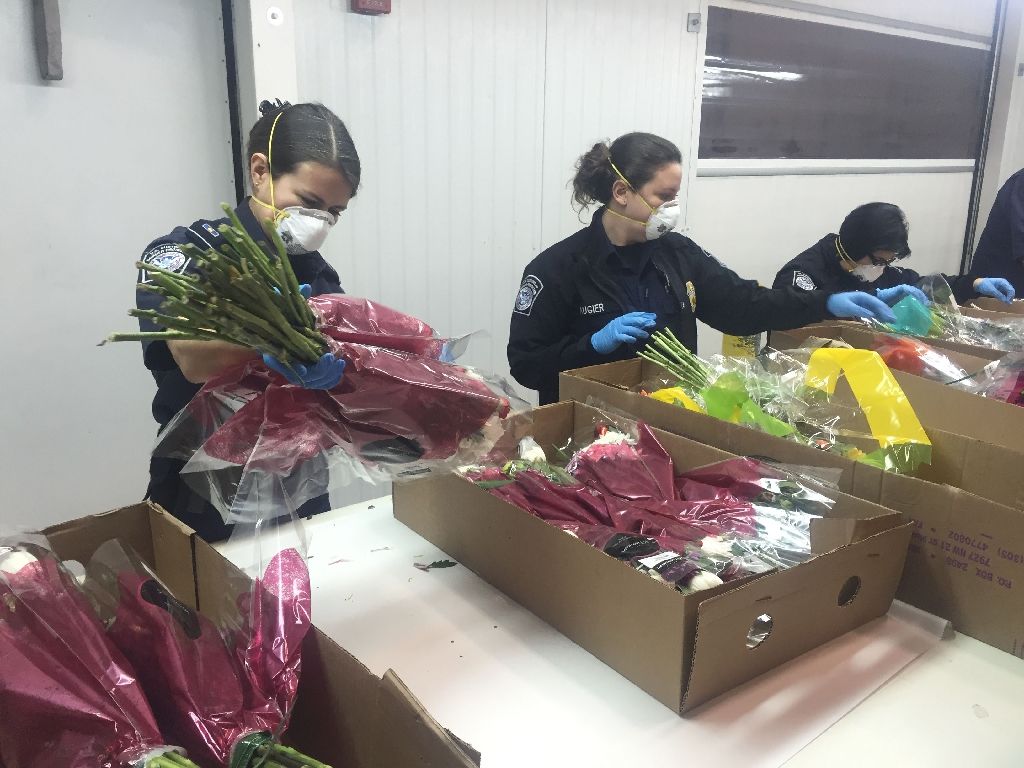
Agriculture specialists from the US Customs and Border Protection inspect a shipment of flower stems on February 8, 2017 at the Miami airport, to keep pests and plant diseases from entering the US and harm local agriculture. AFP Photo
MIAMI: With Valentine’s Day around the corner, US customs inspectors are rolling up their sleeves for the unromantic task of scrutinizing millions of imported flowers to keep out both bugs and drugs.
Cut flowers are a $15 billion industry in the United States and with two thirds of them imported, mostly from Colombia, it’s Valentine’s rush hour at Miami International airport, the hub of the massive operation.
Millions of flowers at a time are kept in a refrigerated warehouse, motors humming to guarantee a stable 1 C (34 degrees F), often despite sweltering subtropical heat, as the flowers are inspected, cleared and shipped.
“It’s a very busy time of the year for us and we have to be very careful,” said Migdalia Arteaga, spokeswoman for agriculture at the US Customs and Border Protection (CPB) agency.
Their approach is not high-tech but seems to work: inspectors grab a bunch, hang it upside down and smack it a few times to see if any insect or other stray stowaway material, drops out.
Even under the magnifying glass, most of the flowers turn out to be problem free.
But sometimes the whacking turns up a ride-along insect.
“This is one of the most important missions that we have,” said Arteaga. “Protecting the nation against pests, that can get to the ecosystem and destroy it or cause havoc,” she warned.
Traffickers in the past have been known to hide drugs in the flood of flowers by injecting them right into flower petals, Arteaga said.
In such cases, customs does not seize the drug-laced plant, but lets it be delivered — and busts the person at the receiving end.
But keeping out the tiny bugs is just as serious a matter, explains Christopher Maston, the customs authority’s port director for Miami.
“It only takes one exotic plant pest to inflict tremendous damage on domestic agriculture, which is a trillion dollar industry,” he said. “Our agriculture specialists represent a front line in protecting America.”
And so biologists and entomologists toil day and night, moving heaven and earth to move a mountain of 500 million roses through Miami, ahead of the February 14 holiday.
“During that period our agriculture specialists at CBP will find roughly 1,800 plant pests,” said Maston. “That sounds like a lot but it’s relatively low.”
Valentine’s Day accounts for a quarter of annual cut-flower sales in the United States, according to the American Society of Florists — rivalled on the calendar only by Mother’s Day. – AFP
